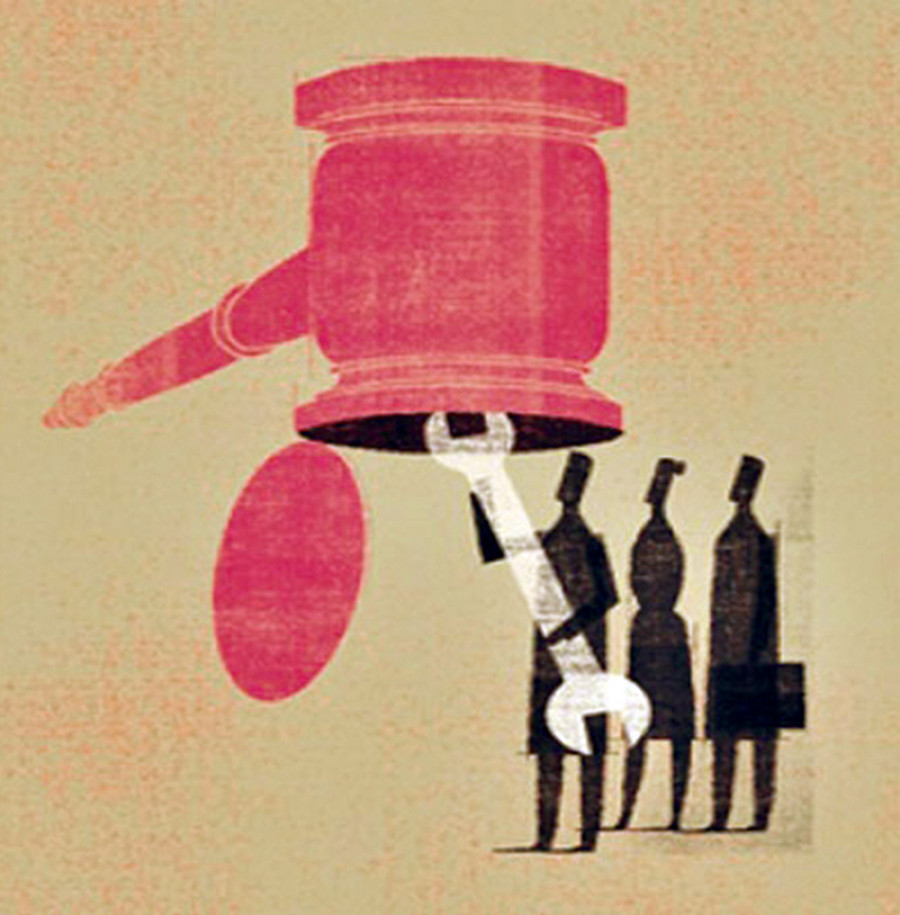Opinion
Parliamentary hearings
The appointment of judges is an integral aspect of the independence of the judiciary
Prakritee Yonzon
The promulgation of a new constitution in 2015 has ushered in a multitude of changes at various levels and structures of government, and they need to be implemented in the spirit of the supreme law of the land. The principle of separation of powers has been imbibed in the constitution, as all three organs of government are recognised as separate, equal and independent. Further, Article 1 recognises the supremacy of the constitution by declaring that it is the fundamental law of the land.
Since constitutional supremacy has expressly been declared, it would be incorrect to argue that any one organ would have supremacy over the other. Particularly questionable is the use of the term of ‘legislative supremacy’ regarding the process of parliamentary hearings for the confirmation of the nomination of the chief justice (CJ). Like its unique federal structure, Nepal has chosen its own method of appointing the CJ. The only requirement under the constitution is that the CJ shall have served as a judge of the Supreme Court for at least three years. In practice, of course, the appointment is based on seniority.
As to the process of appointment, the Constitutional Council (CC) is responsible for recommending the nominee, who is then appointed by the President. Further, the constitution mandates parliamentary hearings for the purpose. However, it does not state whether the hearing is to confirm or reject the candidate, neither does it provide the grounds for acceptance or rejection. The constitution says that the CC must make a recommendation within one month after the CJ leaves office. The independence of the judiciary has been recognised as a basic feature of the constitution. In effect, it is a concept that needs to be realised before the process of the appointment of judges begins. In order to enable the judiciary to achieve its objectives and perform its functions independently, it is essential that judges be chosen on the basis of proven competence, integrity and independence.
Internationally, the basic principles on the independence of the judiciary recognise that persons selected for judicial office shall be individuals of integrity and ability, with appropriate training or qualifications in law. Further, any method of judicial selection shall safeguard against improper motives or discrimination. The present state of affairs of the judiciary begs a series of legal questions, constitutional dilemmas and the need for urgent reform in the process of appointment.
The first issue is whether we need to have clear criteria stated for the selection and appointment of the CJ. For instance, besides seniority, should there be other criteria such as effectiveness, character, reputation and contribution to jurisprudence and other internationally recognised principles, mentioned as specific categories in law or as guidelines? The second issue is whether the scope of the JC and the CC needs to be revised, and whether they should do a thorough background check on the candidates. This would entail checking the academic transcripts and reviewing the reputation at work, behaviour and ideas and visions for the judiciary, to name a few.
In that case, perhaps the public would have been spared the gory details of the mockery of the judiciary that transpired at the parliamentary hearing. Further the JC and CC should have made the recommendations on time, giving ample time for the process of consideration, hearings and appointment. The CJ has a number of administrative obligations to fulfil besides his judicial function of presiding on the bench, which has been in limbo pending the appointment.
The third issue is whether parliamentary hearings should be conducted in the absence of a federal law laying down the procedure. In this phase of transition, where there is much confusion and laws are yet to be formulated, the blatant repudiation of due process has set a bad precedent for other levels and organs of government. Further this has also allowed politicisation of the process, impinging on the independence of the judiciary in the initial stage of appointment itself.
Fourthly, do we need to review the process of appointment by comparing it to other jurisdictions? Should the selection be by merit or seniority? Should parliamentary hearings be made mandatory? Or should they only be conducted ‘when necessary’? Perhaps these questions will be answered when laws for conducting such hearings are in place. And lastly, do the members of the judiciary themselves need to uphold the integrity and dignity of the judiciary? A person who does not have the required credentials, qualifications, expertise and character should not intend or be made to become a judge. This is because the effective implementation of the constitution lies in the protection of the independence of the judiciary.
Yonzon is a lecturer at Kathmandu University School of Law.




 14.12°C Kathmandu
14.12°C Kathmandu










